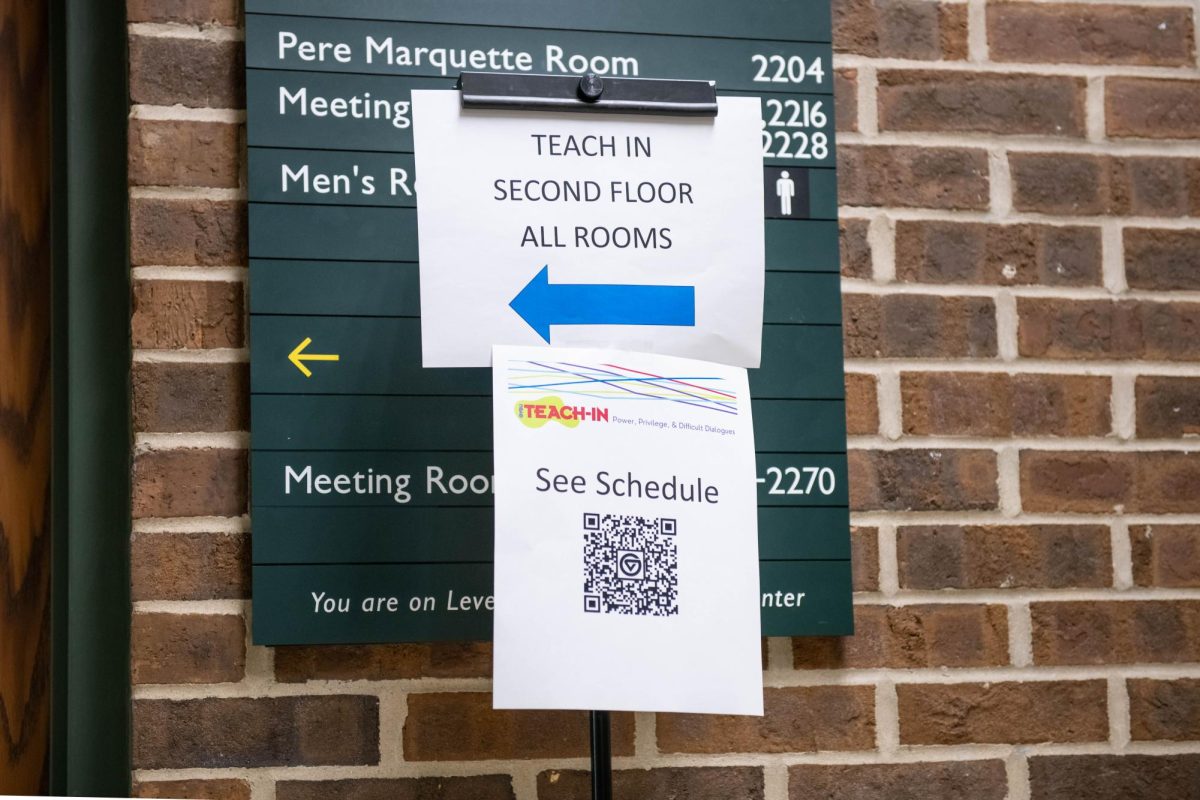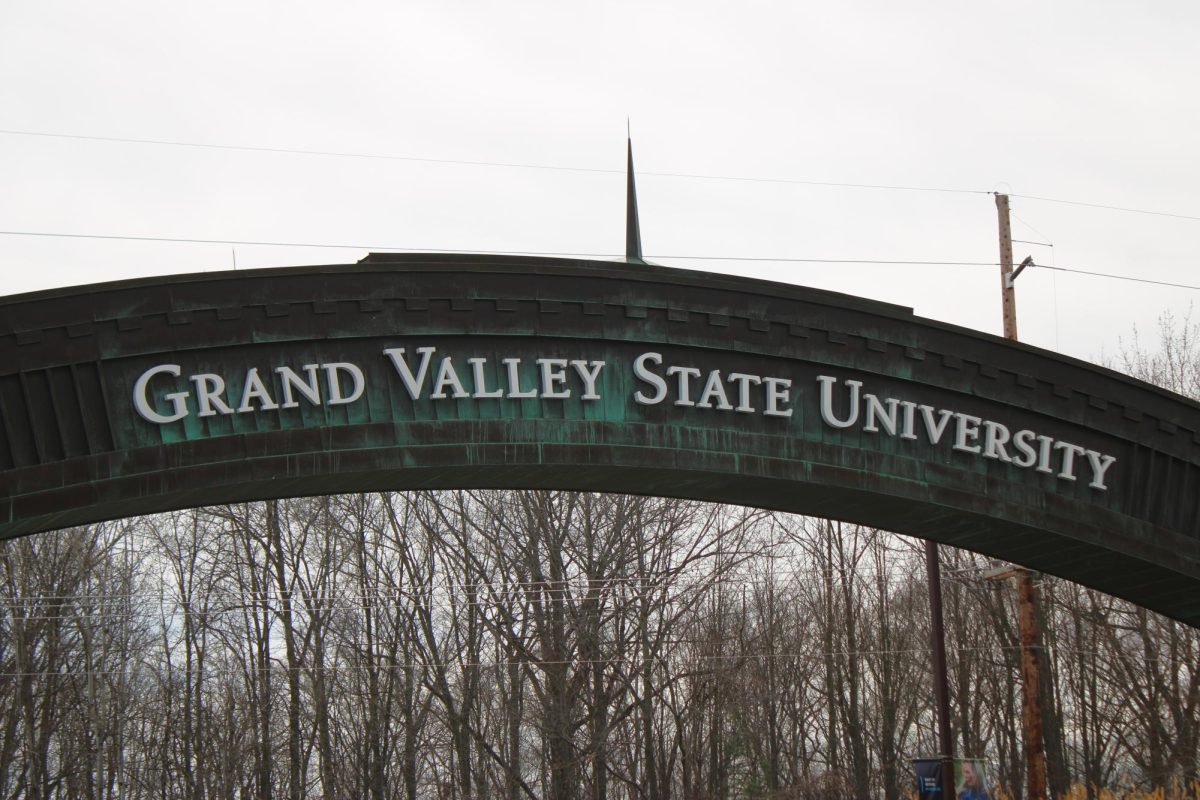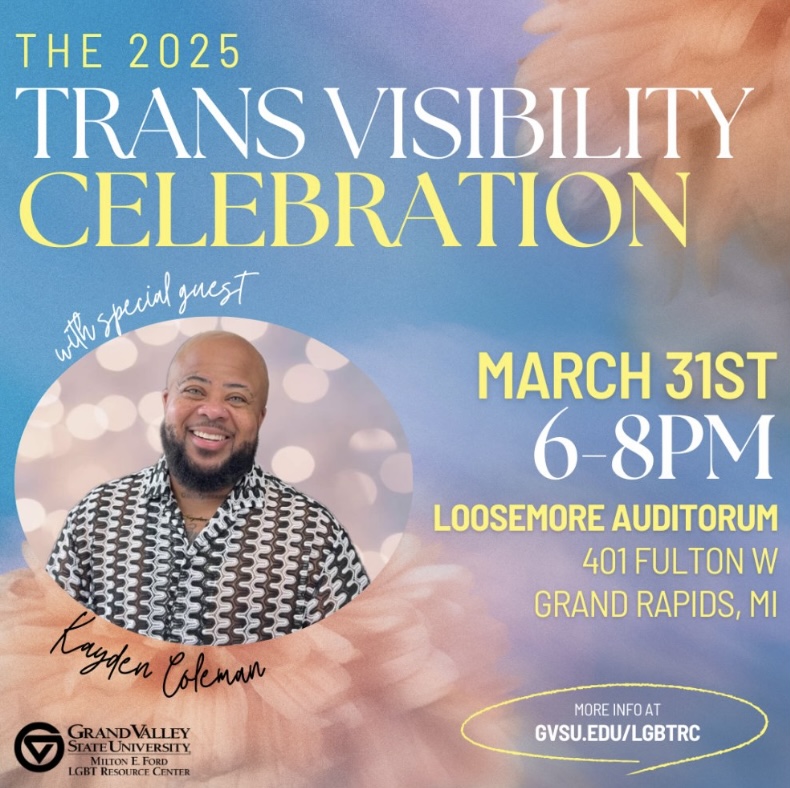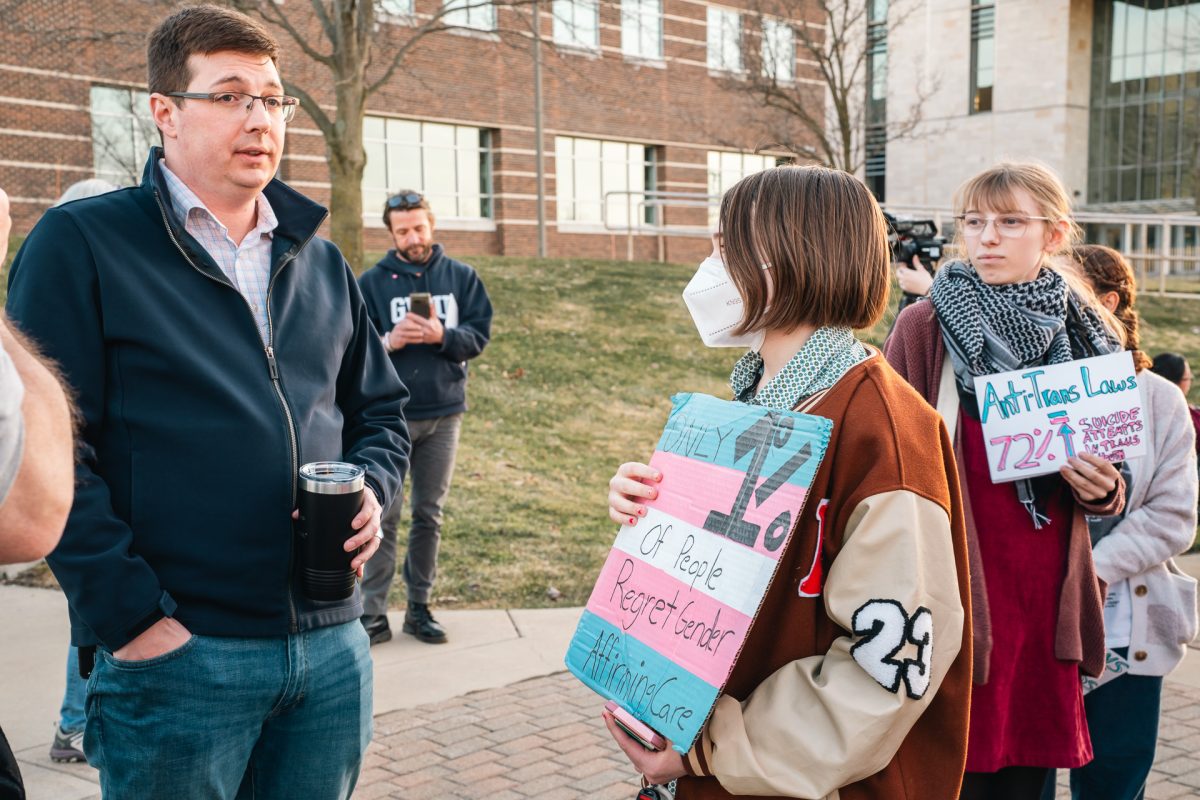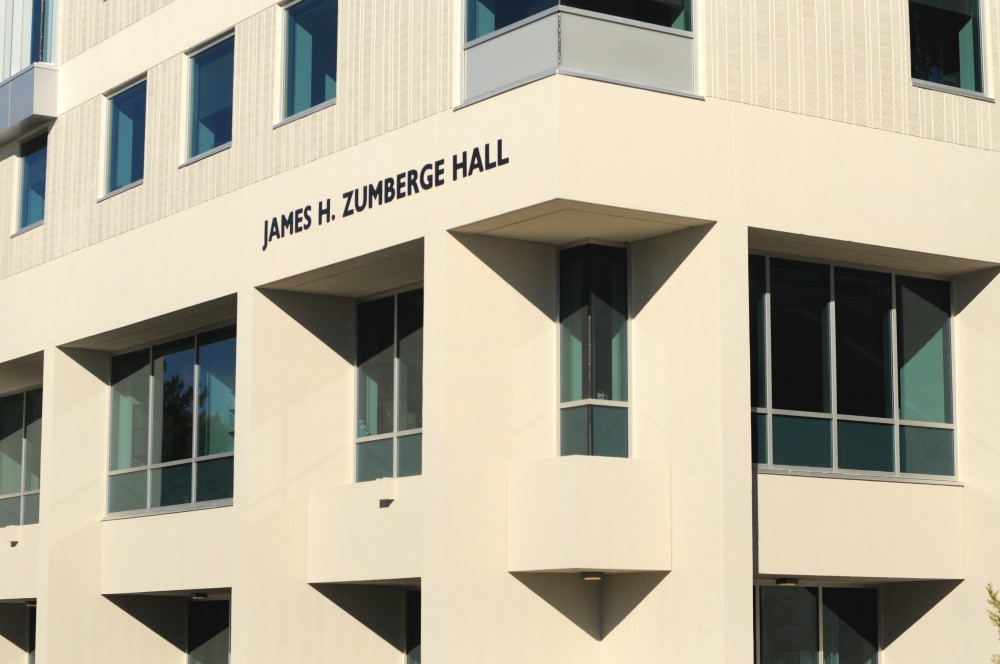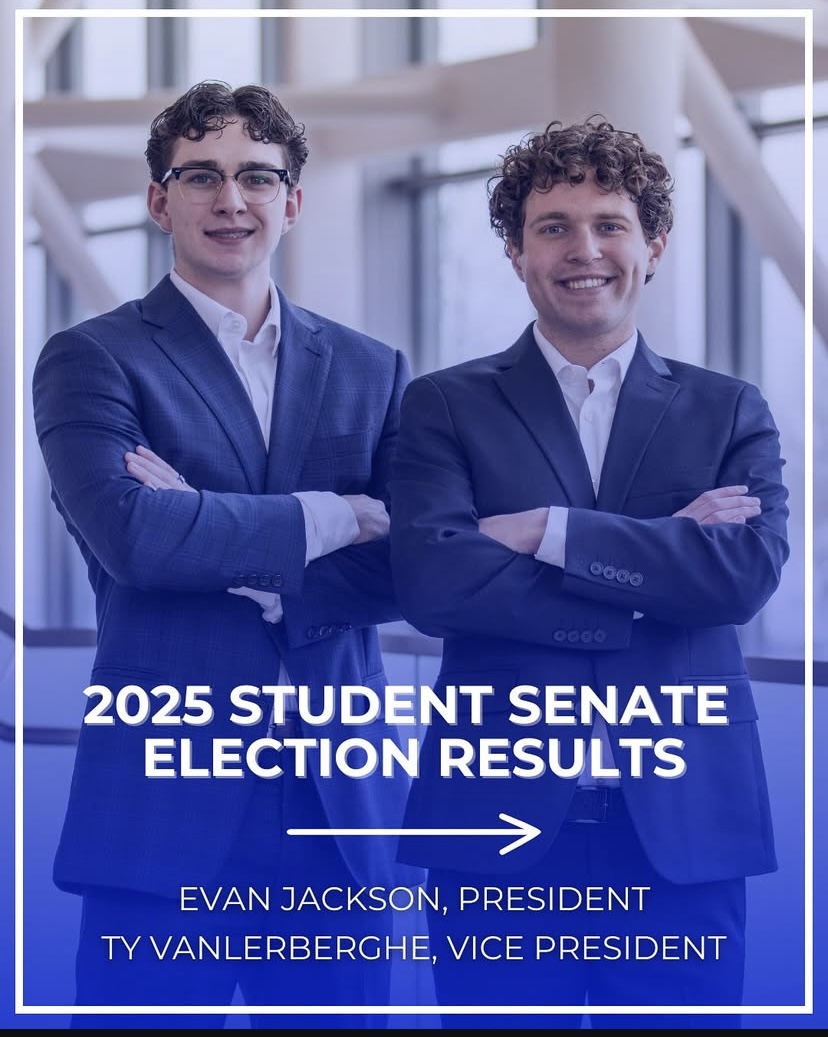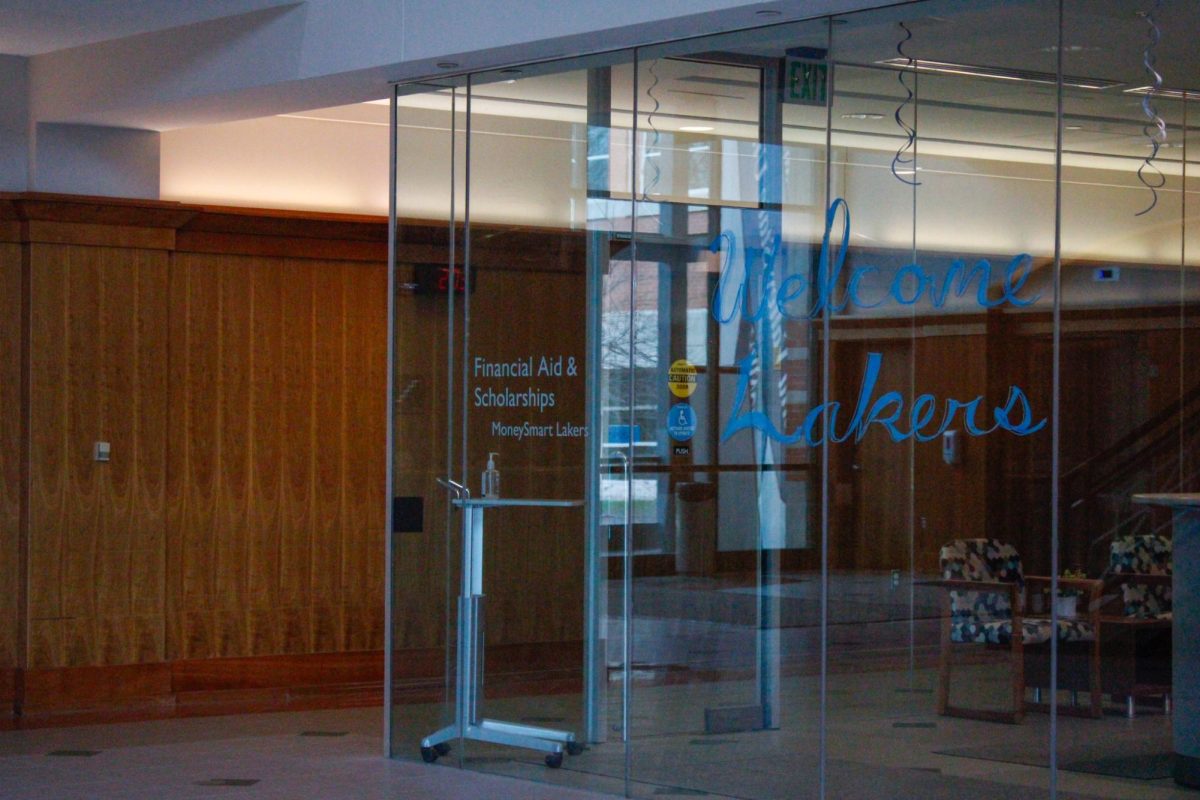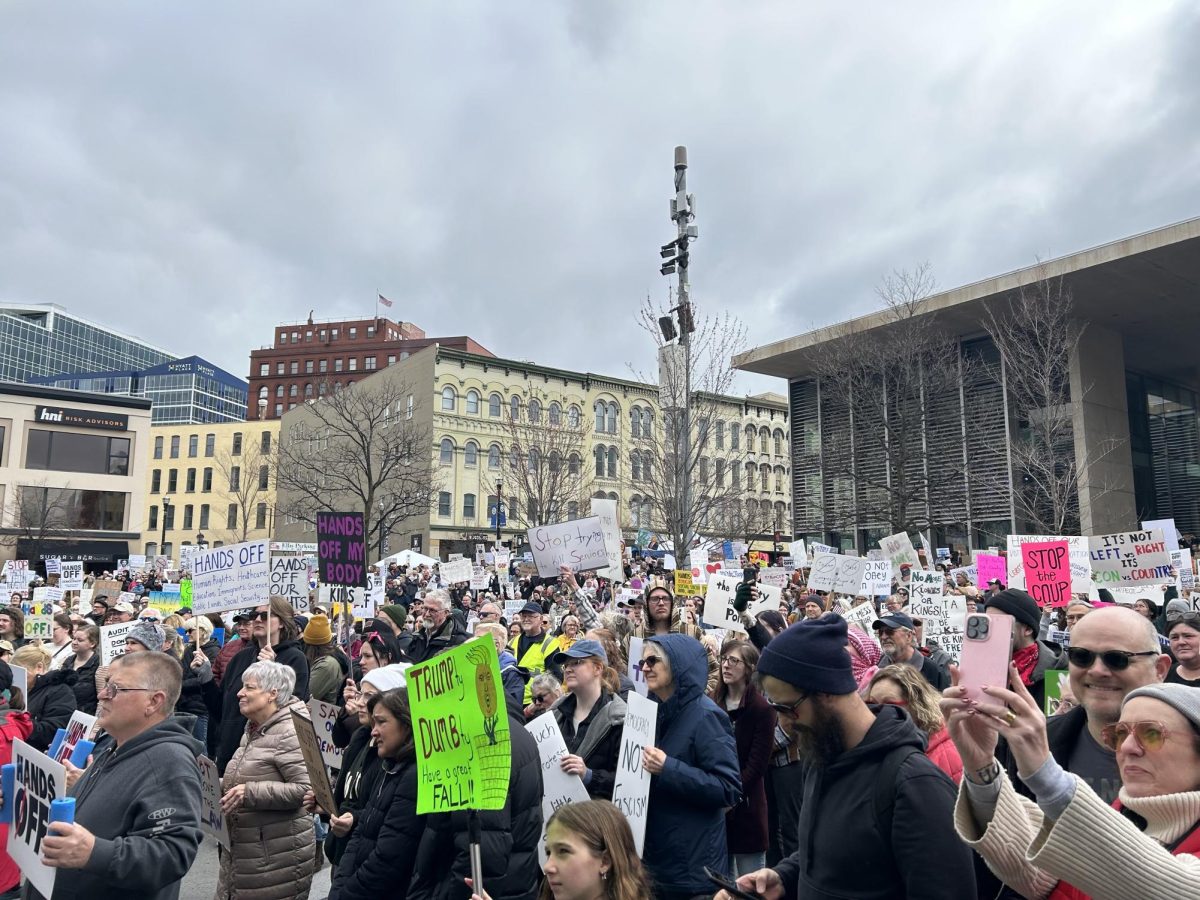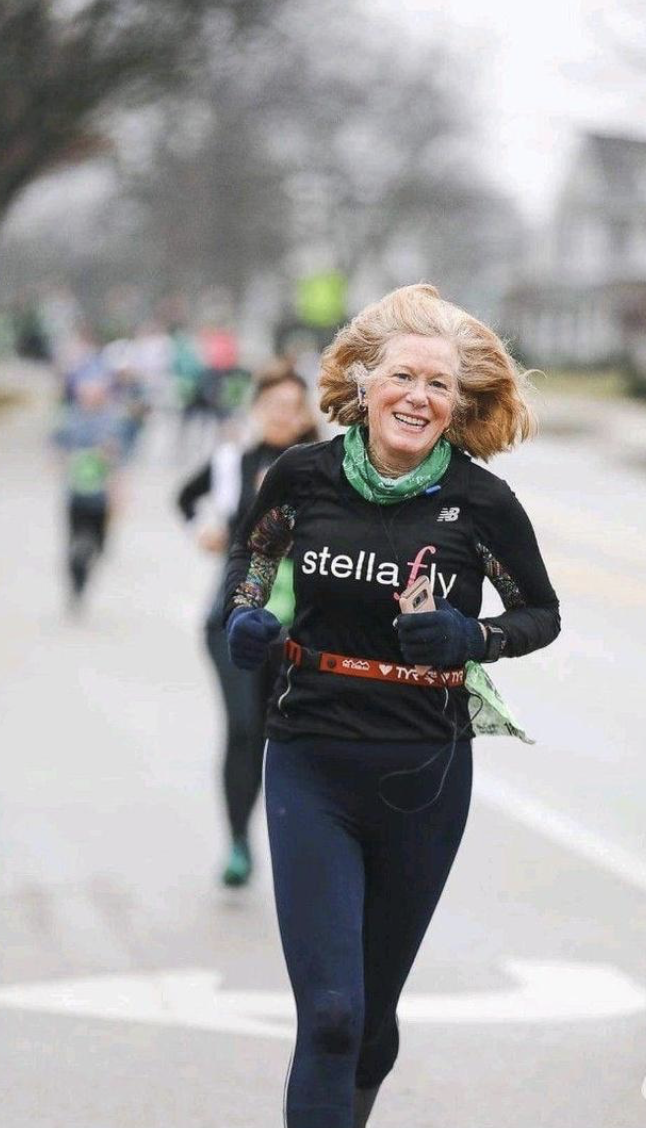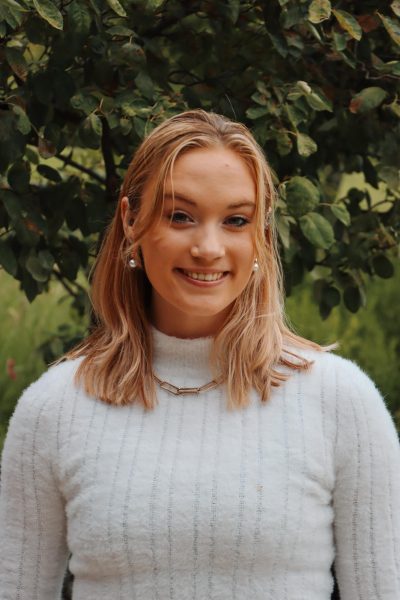Grand Valley State University’s 11th annual “Teach-In” is a volunteer-based learning event that features over 40 presentations surrounding issues of importance to the GVSU community. The two-day event began on Wednesday, Nov. 8 on the GVSU Pew Campus and concluded on Nov. 9 in the Russel H. Kirkhof Center at the Allendale Campus.
Organized by the GVSU Student Senate and the University Academic Senate, the Teach-In’s theme was “Power, Privilege, and Difficult Dialogues.” Students, faculty and staff had many opportunities to learn and host their own discussions, some even hosted by students and faculty together. The presentations held heavily focused on discussion elements, aimed to create a more open channel of communication and expressed issues the campus community cares about.
Marlene Kowalski-Braun, Ph.D., is the Associate Vice President in the Division of Inclusion and Equity at GVSU and a presenter for the Teach-In. Kowalski-Braun said the Teach-In is centered around “mutual education for students, faculty and staff” and provides the GVSU community a chance “to come together around” issues within the theme.
“It’s an annual way to bring everyone together,” Kowalski-Braun said.
From 10:30 a.m. to 8:50 p.m. on Nov. 8, various Teach-In sessions took place covering a range of topics. Robin Wall Kimmerer, State University of New York professor and author of the nationally bestselling book “Braiding Sweetgrass” kicked off the Teach-In sessions with a presentation entitled, “What does the Earth ask of us?”
Each presentation lasted an hour and fifteen minutes and concluded with a question-and-answer discussion. The Teach-In picked up again on Thursday at the Russel H. Kirkhof Center on GVSU’s Allendale Campus. The second session on Nov. 9 ran from 8:30 a.m. to 7:30 p.m. and closed the educational presentation section with award-winning children’s author Monique Gray Smith.
The first presentation of the second day titled “Creating Inclusive Cultures of Exclusivity within Greek Life and Beyond” was hosted by Jeremy Paul, Assistant Director of Student Life, and Alicen Fimple, Student Life Specialist. They aimed to provide context to Greek Life as a whole and cultivate diversity moving forward.
“Thinking with the theme of this Teach-In, we had experience that could be really Fraternity and Sorority Life (FSL) valuable and opening up conversations to people that are maybe outside the (Greek Life) community that we work with,” Fimple said.
Their presentation examined how Greek Life on campus began as an all-white and predominantly male structure and has grown to be more inclusive. Paul and Fimple frequently interacted with students in the audience, drawing from current GVSU community members’ own experiences with Greek Life.
“By nature, fraternity and sorority life throughout history has been really intentional in how it excludes people, it’s so incredibly important that we’re challenging our students to be more inclusive in the environments they’re creating,” Paul said.
Paul and Fimple pushed students and attendees to question the inclusivity of the spaces around them, not just in Greek Life. Their presentation acknowledged the acceptance of more diversity in higher educational spaces and called attention to further inclusion.
“Ally to Accomplice: Personal and Collective Responsibility,” presented by Kowalski-Braun, GVSU senior Sydney Hohlbein and GVSU first-year Heaven Walker ran from 10 a.m. to 11:15 a.m. on Thursday. Kowalski-Braun, Hohlbein and Walker’s presentation focused on learning how to be authentic to marginalized communities and the transition from being an ally to an accomplice.
“Moving from being an ally to an accomplice is the act of practice of listening and amplifying those (marginalized) voices,” Hohlbein said.
The audience was asked to identify what being an accomplice meant to them and to look at situations in their own lives where they needed to rethink their view. The presenters themselves also shared instances in which they found themselves on the wrong side of social justice and had to rethink their opinions. This kind of vulnerability and honesty aims to draw awareness to the need for a wider cultural shift, creating space for diversity.
The Teach-In is entirely volunteer-based which means the topics covered within each session are of the utmost importance to the presenters within the campus community. The Teach-In provides a platform for the GVSU community to express topics that they feel deserve more attention. While there are many learning opportunities at the university, the Teach-In communicates important issues beyond a classroom or individual organization’s setting to the greater GVSU community.




